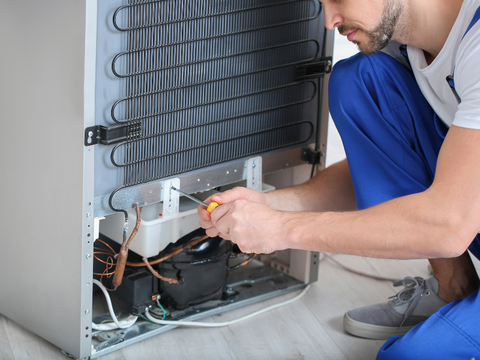Noise from commercial refrigerators can affect the comfort of food service establishment customers, employees, and nearby residents. While there is a certain level of noise associated with commercial refrigerators, excessive noise may indicate an underlying problem that needs to be addressed. In this article, we'll discuss common causes of commercial refrigerator noise, how to diagnose the problem, and ways to reduce refrigerator noise. By properly managing refrigerator noise, food service establishments can create a more comfortable and enjoyable environment.

Understand the source of noise
Before trying to reduce noise, it's crucial to understand its source. Common sources include the compressor, fan motor, vibration from the appliance to the floor or walls, or loose parts inside the refrigerator. Regular maintenance inspections can help determine the specific cause.
Compressor issues: The compressor is the motor that circulates the refrigerant inside the refrigerator. If the compressor malfunctions or malfunctions, it may produce noises such as ringing or humming.
Fan Problem: The fan helps circulate the air inside the refrigerator and cools the refrigerant. A faulty fan or fan motor may produce noise, such as grinding or whistling.
Condenser issues: The condenser is responsible for removing heat from the refrigerator. If the condenser coil is dirty or clogged, the refrigerator may work harder and make more noise.
Loose Parts: Over time, parts inside your refrigerator can become loose, causing rattling or banging sounds.
In order to diagnose the specific source of the noise, you need to listen carefully to the type of noise and where it is located within the refrigerator. This will help identify specific issues that need to be addressed to make your refrigerator quieter.
When noise from commercial refrigerators affects the comfort of food service establishment customers, employees, and nearby residents, further steps are needed to reduce noise levels. Here are some more detailed ways to help you make your commercial refrigerator quieter:
Selection of sound insulation materials: Add sound insulation materials to the interior or exterior of commercial refrigerators to reduce the transmission of noise. You can use materials like acoustic foam, baffles, or heavy-duty vinyl. These materials can effectively absorb and isolate noise, making the refrigerator quieter.
Adjust condenser position: The condenser is the part of the refrigerator that releases heat. If the condenser is located near a sensitive area, such as a restaurant or office, you may consider moving it to a farther location. This reduces the spread of noise.
Regular maintenance: Regularly check various parts of the refrigerator, including the compressor, fan, and condenser. Clean the condenser coil, replace the failed fan motor, and tighten loose parts. This will help keep your refrigerator running properly and reduce noise.

Use vibration dampers: Commercial refrigerators often vibrate, which can also cause noise. You can install vibration dampers on the bottom of your refrigerator to reduce vibration transfer. These absorbers can effectively reduce noise.
Reposition your refrigerator: Noise can travel more easily if your refrigerator is close to a wall or other hard surface. Try to place the refrigerator as far away from the wall as possible to reduce reflected noise.
Hire a professional technician: If you are unable to solve the refrigerator noise problem yourself, it is recommended that you hire a professional technician to perform inspection and maintenance. They can diagnose the problem and provide more specific solutions.
Reducing the noise of your commercial refrigerator not only creates a more enjoyable and efficient workspace, but also ensures the longevity and efficient operation of the equipment. By following these steps, you can effectively solve your noise problem and enjoy a quieter kitchen environment.
Keep in mind that while some noise is normal when your refrigerator is operating normally, excessive noise is usually a sign of an underlying problem that should be addressed immediately. Stay vigilant, maintain your equipment, and don't hesitate to seek professional help when needed.Stay calm and stay quiet!
























